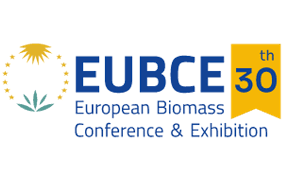Ver ítem
- xmlui.general.dspace_homeCentros e Institutos de InvestigaciónCICVyA. Centro de Investigación en Ciencias Veterinarias y AgronómicasInstituto de Microbiología y Zoología AgrícolaPresentaciones a Congresosxmlui.ArtifactBrowser.ItemViewer.trail
- Inicio
- Centros e Institutos de Investigación
- CICVyA. Centro de Investigación en Ciencias Veterinarias y Agronómicas
- Instituto de Microbiología y Zoología Agrícola
- Presentaciones a Congresos
- Ver ítem
Phytoremediation of Contaminated Sites to Produce Feedstock for Sustainable Biofuels
Resumen
Biomass can play a higher role for energy availability and security in the context of decarbonisation; but land scarcity is a critical and limiting factor for the global biofuel production from energy crops. At the same time, soil pollution is widespread all over Europe, where a significant area of land is contaminated and therefore unusable for any purpose. The overall objective of the H2020 Phy2Climate project is to build the bridge between the
[ver mas...]
Biomass can play a higher role for energy availability and security in the context of decarbonisation; but land scarcity is a critical and limiting factor for the global biofuel production from energy crops. At the same time, soil pollution is widespread all over Europe, where a significant area of land is contaminated and therefore unusable for any purpose. The overall objective of the H2020 Phy2Climate project is to build the bridge between the phytoremediation of contaminated sites with the production of clean drop-in biofuels. Phytoremediation consists of employing plants in soil decontamination and its effectiveness depends on the plants ability to absorb, transfer, stabilize, concentrate and/or degrade contaminants. As the project aims for the production of high-quality drop-in biofuels like marine fuels (ISO 8217), gasoline (EN 228) and diesel (EN 590), a biorefinery concept is employed and the biorefinery processing of biomass harvested from four contaminated pilot sites in different regions of Europe and South-America is based on the Thermo-Catalytic Reforming (TCR®) technology, which combines an intermediate pyrolysis process with a subsequently catalytic reforming of the pyrolysis productsThe produced biofuels will present no Land Use Change risks, thus, the phytoremediation will decontaminate lands from a vast variety of pollutants and make the restored lands available for agriculture, while improving the overall sustainability, legal framework, and economics of the process.
[Cerrar]

Autor
Ortner, Markus;
Otto, H.J.;
Brunbauer, Lukas;
Kick, Christopher;
Eschen, Markus;
Sanchis, Sonia;
Matanzas Valtuille, Nora;
Catalan Merlos, Alba;
Zeremski, Tijana;
Jeromela, A.;
Milic, S.;
Szlek, Andrzej;
Petela, Karolina;
Simla, T.;
Grassi, Angela;
Capaccioli, S.;
Fermeglia, Matteo;
Vanheusden, Bernard;
Perišić, Marko;
Young, Brian Jonathan;
Roqueiro, Gonzalo;
Rizzo, Pedro Federico;
Heredia, Belén;
Hruby, Silvina Anabela;
Maletić, S.;
Roncevic, S.;
Kragulj Isakovski, M.;
Beljin, I.;
Kidikas, Zygimantas;
Kasiuliene, A.;
Gavrilovic, O.;
Blazquez-Palli, Natalia;
Lopez Cabornero, Daniel;
Jaggi, Carmen;
Klein, Viktor;
Fuente
31th European Biomass Conference and Exhibition. 2023. Section 1BV.3.7. 142-150
Fecha
2023-06-05
Editorial
ETA Florence Renewable Energies (ETA Srl)
Formato
pdf
Tipo de documento
documento de conferencia
Palabras Claves
Derechos de acceso
Abierto
 Excepto donde se diga explicitamente, este item se publica bajo la siguiente descripción: Creative Commons Attribution-NonCommercial-ShareAlike 2.5 Unported (CC BY-NC-SA 2.5)
Excepto donde se diga explicitamente, este item se publica bajo la siguiente descripción: Creative Commons Attribution-NonCommercial-ShareAlike 2.5 Unported (CC BY-NC-SA 2.5)


